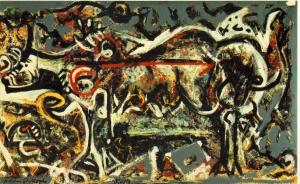Meaning of Man is the measure of all things
What does Man is the measure of all things mean:
"Man is the measure of all things" is an affirmation of the Greek sophist Protagoras. It is a philosophical principle according to which the human being is the norm of what is true for himself, which would also imply that the truth is relative to each one. It has a strong anthropocentric charge.
Because the works of Protagoras were lost in their entirety, this phrase has come down to us thanks to the fact that several ancient authors, such as Diogenes Laertius, Plato, Aristotle, Sixth Empiricist or Hermias, referred to it in their plays. In fact, according to Sexto Empirico, the phrase was found in the work The devastating speechesby Protágoras.
Traditionally, the phrase has traditionally been included within the stream of relativistic thinking. Relativism is a doctrine of thought that denies the absolute character of certain values, such as truth, existence or beauty, since it considers that the The truth or falsity of any statement is conditioned by the set of factors, both intrinsic and extrinsic, that affect the perception of the individual.
Phrase analysis
The phrase "man is the measure of all things" is a philosophical principle enunciated by Protagoras. It admits different interpretations depending on the meaning attributed to each of its elements, namely: man, measure and things.
Let's think, to begin with, what Protagoras could be referring to when he spoke of "the man." Would it be, perhaps, man understood as an individual or man in a collective sense, as a species, that is, humanity?
Considering man in an individual sense, we could affirm, then, that there would be as many measures for things as there are men. Plato, an idealistic philosopher, subscribed to this theory.
Thinking of man in a collective sense, two different approaches would be admissible. One according to which this collective man would refer to each human group (community, people, nation), and another extended to the entire human species.
The first of these hypotheses, then, would imply a certain cultural relativismIn other words, each society, each people, each nation, would act as a measure of things.
For its part, the second of the hypotheses conceived by GoetheIt would mean considering existence as the only measure common to all humankind.
The truth is that, in any case, the affirmation of man as a measure of things has a strong anthropocentric charge, which, in turn, describes a process of evolution of philosophical thought in the Greeks.
From a first phase, where the the gods In the center of thought, as an explanation of things, a second stage is passed, the center of which will be occupied by nature and the explanation of his phenomena, to finally arrive at this third phase in which the human being It happens to be at the center of the concerns of philosophical thought.
Hence, also, the relativistic charge of the phrase. Now the human being will be the measure, the standard from which things will be considered. In this sense, for Plato The meaning of the phrase could be explained as follows: such a thing seems to me, such is for me, such it seems to you, such it is for you.
Our perceptions, in short, are relative to us, to what appears to us. And what we know as "properties of objects" are actually relationships that are established between subjects and objects. For example: a coffee may be too hot for me, while for my friend its temperature is ideal to drink it. Thus, the question "Is the coffee very hot?" Would obtain two different answers from two different subjects.
For this reason, Aristotle interpreted that what Protagoras really meant was that all things are as they seem to each. Although he contrasted that, then, the same thing could be both good and bad, and that, consequently, all the opposite statements would come to be equally true. Ultimately, the truth would then be relative to each individual, a statement that effectively recognizes one of the main principles of relativism.
It may interest you: All about Plato: biography, contributions and works of the Greek philosopher.
About Protagoras
Protagoras, born is Abdera, in 485 BC. de C., and died in 411 a. of C., was a celebrated Greek sophist, renowned for his wisdom in the art of rhetoric and famous for having been, in Plato's judgment, the inventor of the role of the professional sophist, teacher of rhetoric and conduct. Plato himself, moreover, would dedicate one of his dialogues, the Protagoras, where he reflected on the different types of sophists.
He spent long periods in Athens. He was entrusted with the drafting of the first constitution that established public and compulsory education. Due to his agnostic posture, his works were burned and the rest of those that remained with him were lost when the ship in which he was traveling into exile capsized. It is for this reason that only some of his sentences have reached us through other philosophers who quote him.



